The quiet, still mornings in the Boundary Waters are the epitome of peacefulness. We don’t realize how noisy our normal world is until we experience the wilderness. Despite another night of not sleeping well (I found myself rolling downhill off my sleeping pad), the dawn light and smooth water soothed my morning fatigue and rejuvenated my spirit. After our difficult day #2 that had little time for fishing, Aaron rose with the sun and launched the canoe to glide on the glassy water of Dix Lake and entice some fish. The mirror reflection of the shore trees and rocks is a little disorienting—the ‘real’ world doubles in illusion.
Aaron had a couple of bites, and he discovered some other early morning adventurers. He saw a mama otter swimming with her two young ones. Otters are such excellent swimmers—graceful, playful, and skilled. When Aaron got too close to them in the water, they popped up onto shore, and mama hissed at him to stay away from her babies. They then disappeared into the woods but reappeared in the water farther down the shore.


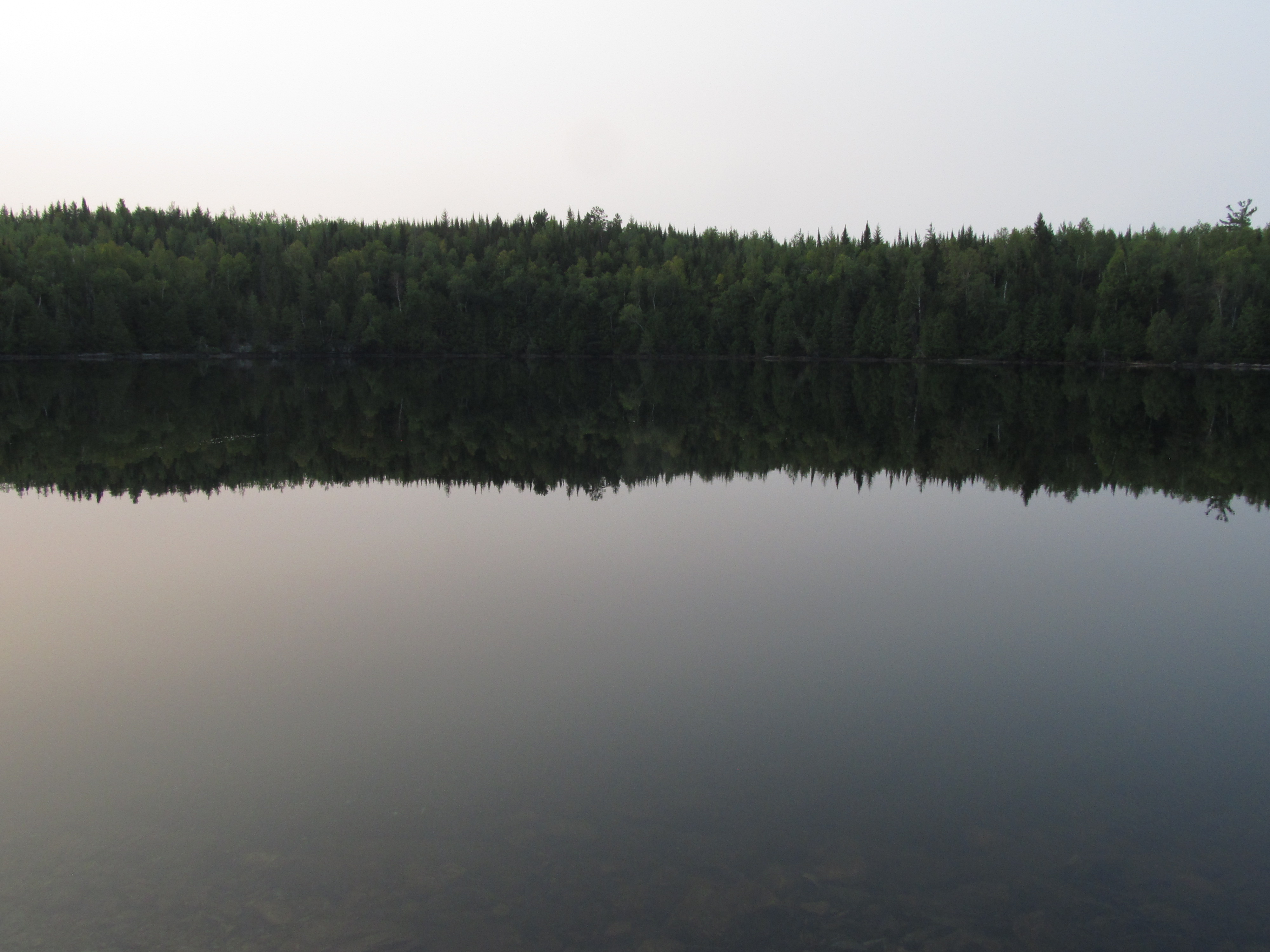
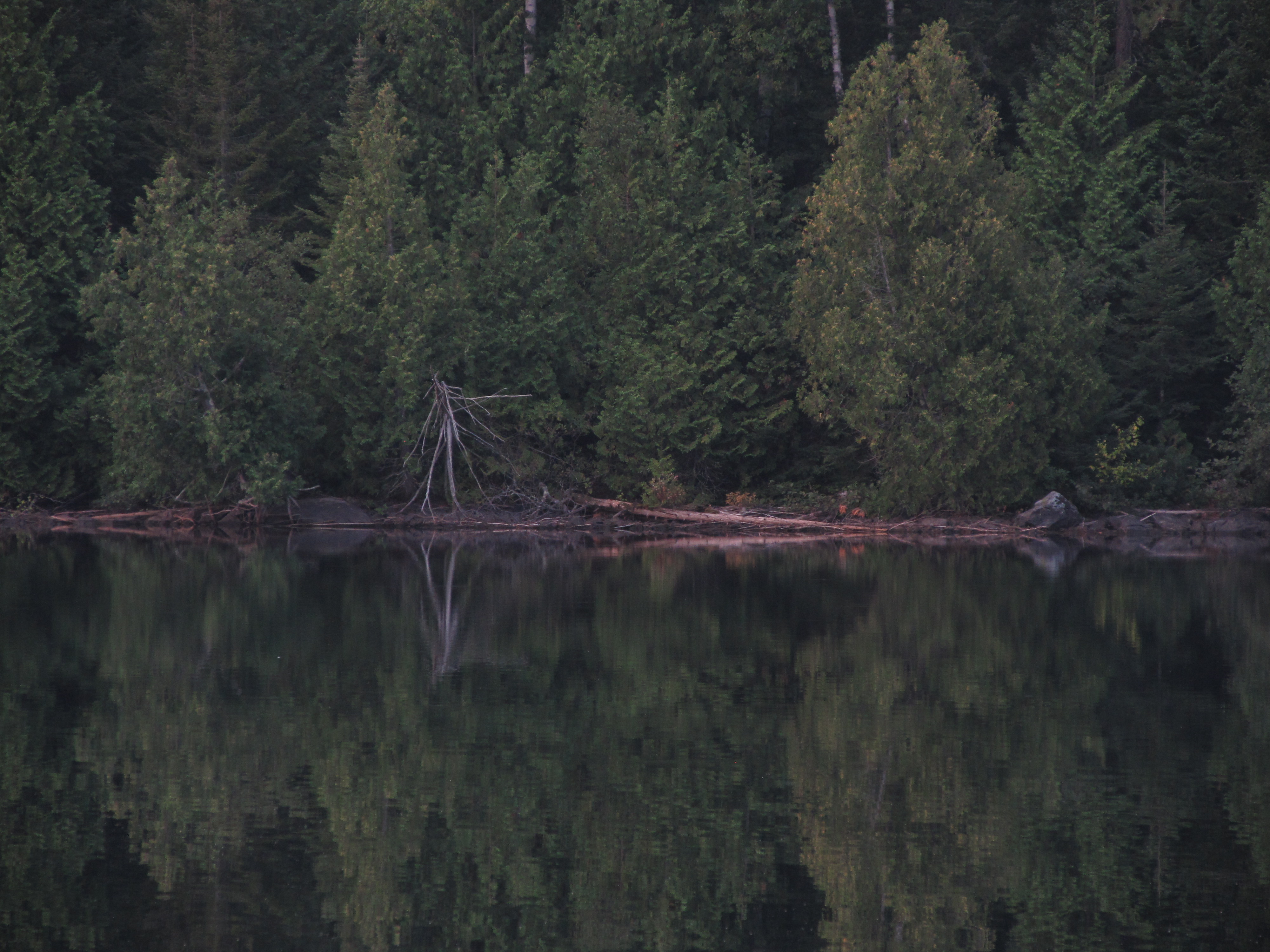
After the previous challenging day of finding a campsite and lacking any desire to stay in the cramped site that saved us the night before, we got an early start. We ate a quick oatmeal breakfast, then packed up and pushed off. I wish I could say my reckoning from the day before had eliminated my morning paddling struggles, but I had my fair share of paddle-down-head-down moments. But it was better than the previous two days, so progress is good in my book. We had a short 30-rod portage into Skoota Lake, then prepared our heads (okay, I did) for our longest-yet portage of 180 rods (a little over half a mile). It was a challenge I was ready to accept! I carried my pack and paddles up and down the rocky terrain—another milestone for me to check off. After our portage, we were rewarded by one of the most beautiful lakes we paddled through—Missionary Lake. The pictures don’t do it justice!


Another short portage brought us to Trader Lake, a smaller lake with no campsites. We paddled around a large peninsula looking for the next portage. All I could see were steep hills, and I commented I didn’t want to portage up those ‘mountains!’ The trail makers had chosen wisely though, in a place that went between the steepest elevation with only a rocky descent into Vera Lake. Our smooth portages continued with us getting all our gear in one trip and with the kids carrying packs and canoes.
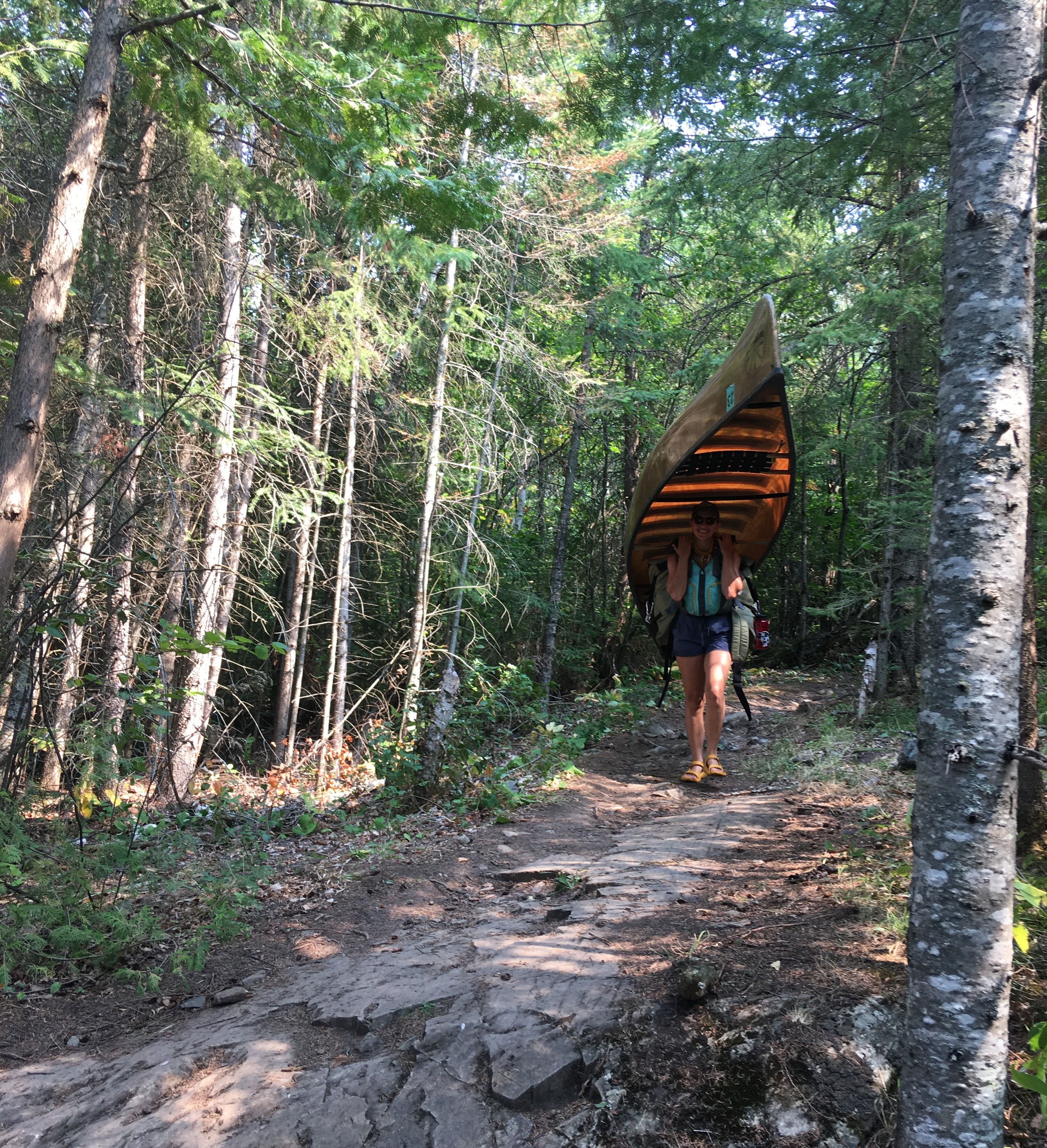

It was a hot, hazy day, but with our early start we progressed through five lakes and four portages and found the last campsite on Vera was open! And it was only mid-morning! We were going to have a much more relaxing day than the day before! Our campsite was large; our tents were scattered out so that no snoring, talking in our sleep (a-hmm, like the previous night), or zzzipping the tents open and closed would disturb the others. The animals of our campsite were lots of chipmunks who bravely skittered around in the hopes of food crumbs (and climbed over Emily’s shoulders), Ruffed Grouse who made funny little ‘talking’ sounds, and of course, the Loon of the Lake who crooned us to sleep at night.




Paddling, portaging, and sleeping were not my only challenges of the week. I like to have things…clean. While I absolutely love being outside and embrace being ‘in the dirt’ in the garden and flower beds, food preparation is another story. The first time we stopped for lunch (and every meal since) when I saw all the bags of food being put down in the dirt around the bear barrels, I had a physical reaction. I wanted to pick them up and put them on….something. By the second night I was heralding the presence of a large, flat rock beside the fire grate—“We have a table!” But once again, the kids were the pros at this, despite working in the dirt. I never bit into a ‘gritty’ piece of food, I never had to brush dirt off anything I was eating, and really, I just had to ‘get over it’ a bit, because ‘when in the Boundary Waters…!’ Washing the dishes was another area where I needed to ‘loosen up.’ We didn’t have the time (at times) or the energy (at times) to heat water and wash them in hot water with camp suds. So I turned a blind eye towards that after a while (and survived.)
Another aspect of BWCA wilderness life is the latrine. From the campsite, there is a path that wanders into the woods until you reach the latrine. It is an open-air bathroom, the most primitive of outhouses. So the system of the latrine is a ‘toilet’ bag with rolls of paper to get everyone through the week and some hand sanitizer that is placed at the beginning of the latrine trail. If the bag is there, nobody is at the latrine, so pick up the bag and take it with you. If no bag, wait until the person comes back. Simple.

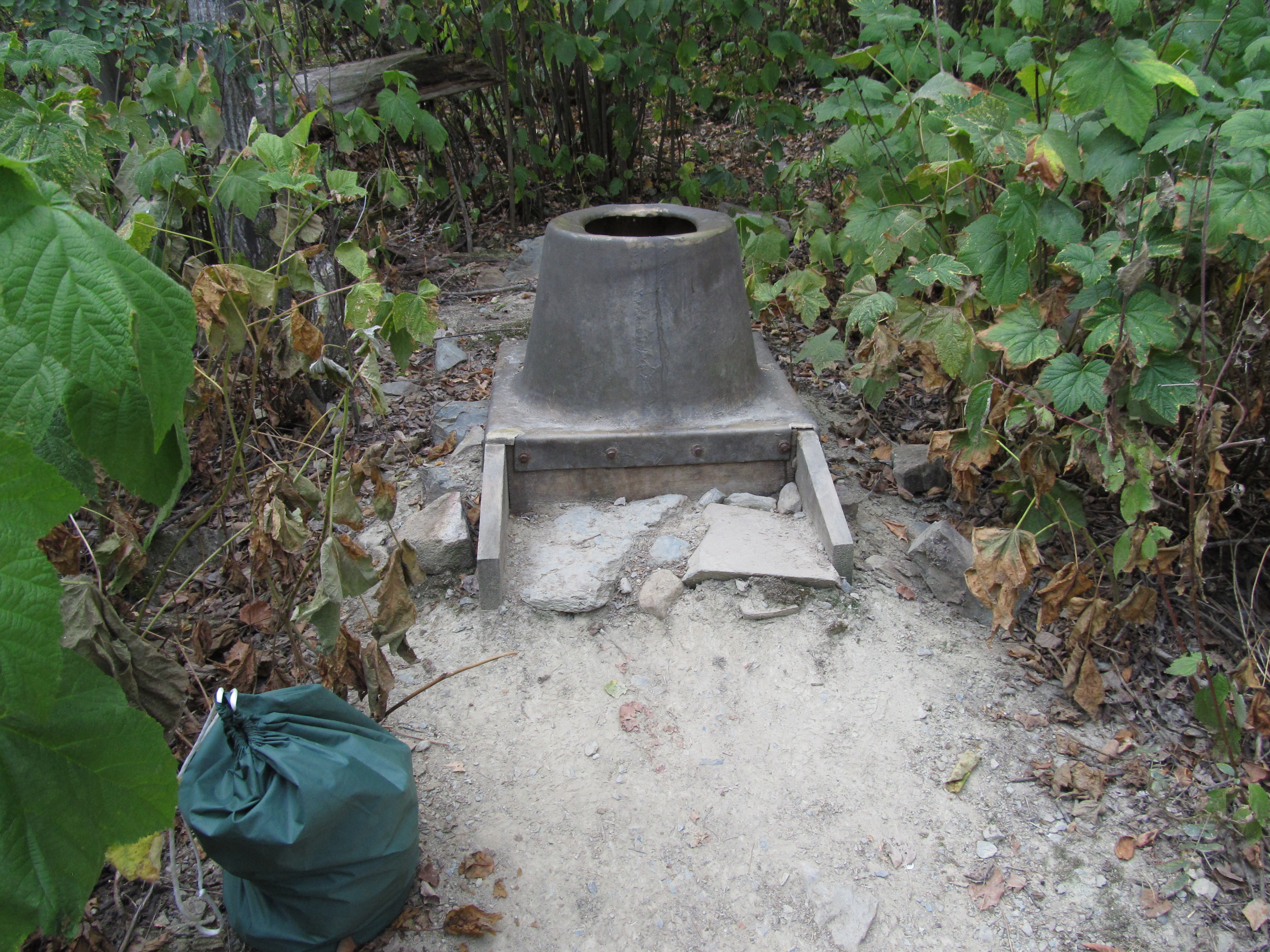
So much of the ‘land’ in northern Minnesota is actually just rock, and many of the campsites are positioned on large outcroppings that jut into the lakes. This huge boulder was unusual with its lines of white quartz, like ancient artwork preserved for our modern eyes.

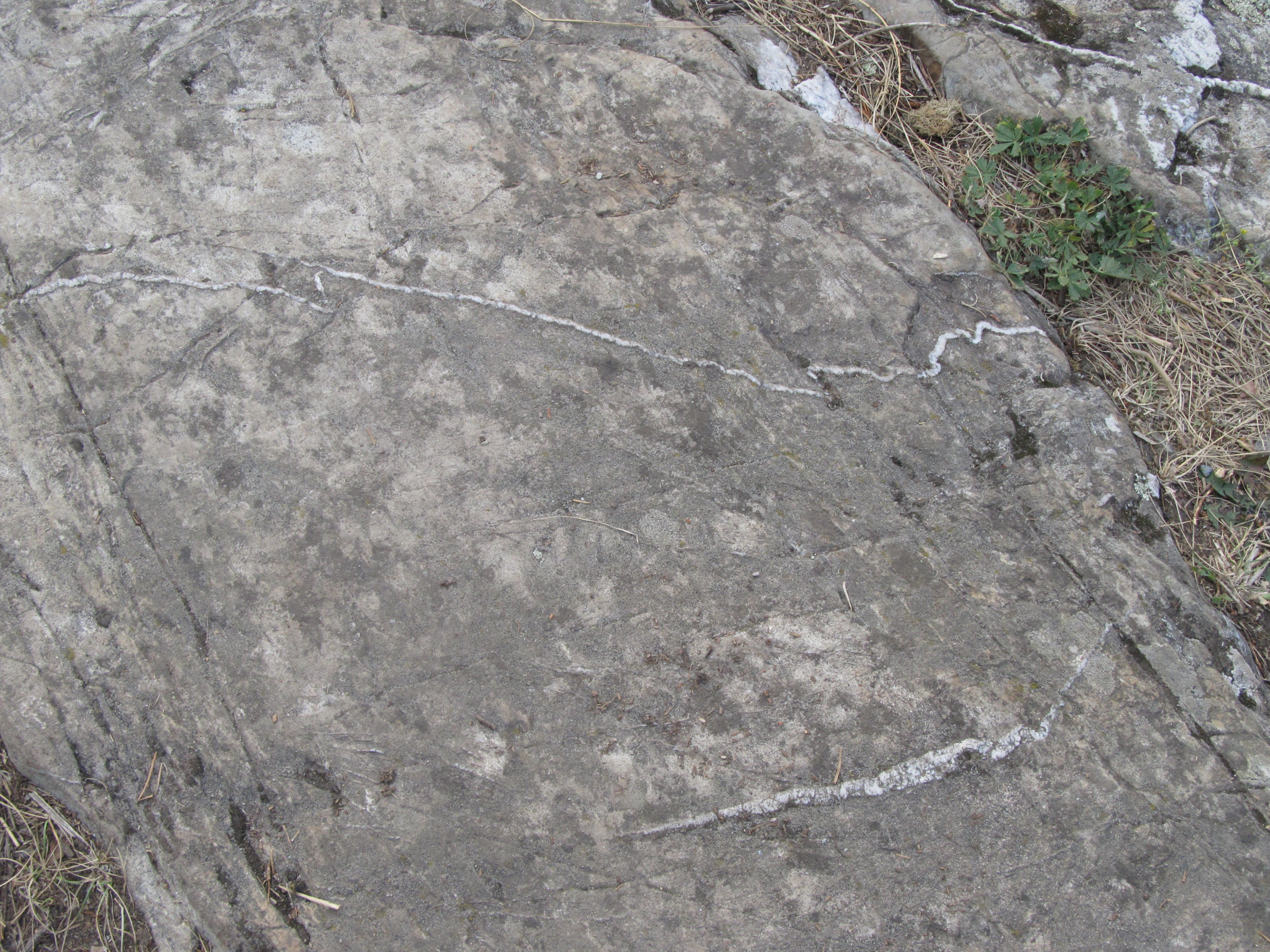
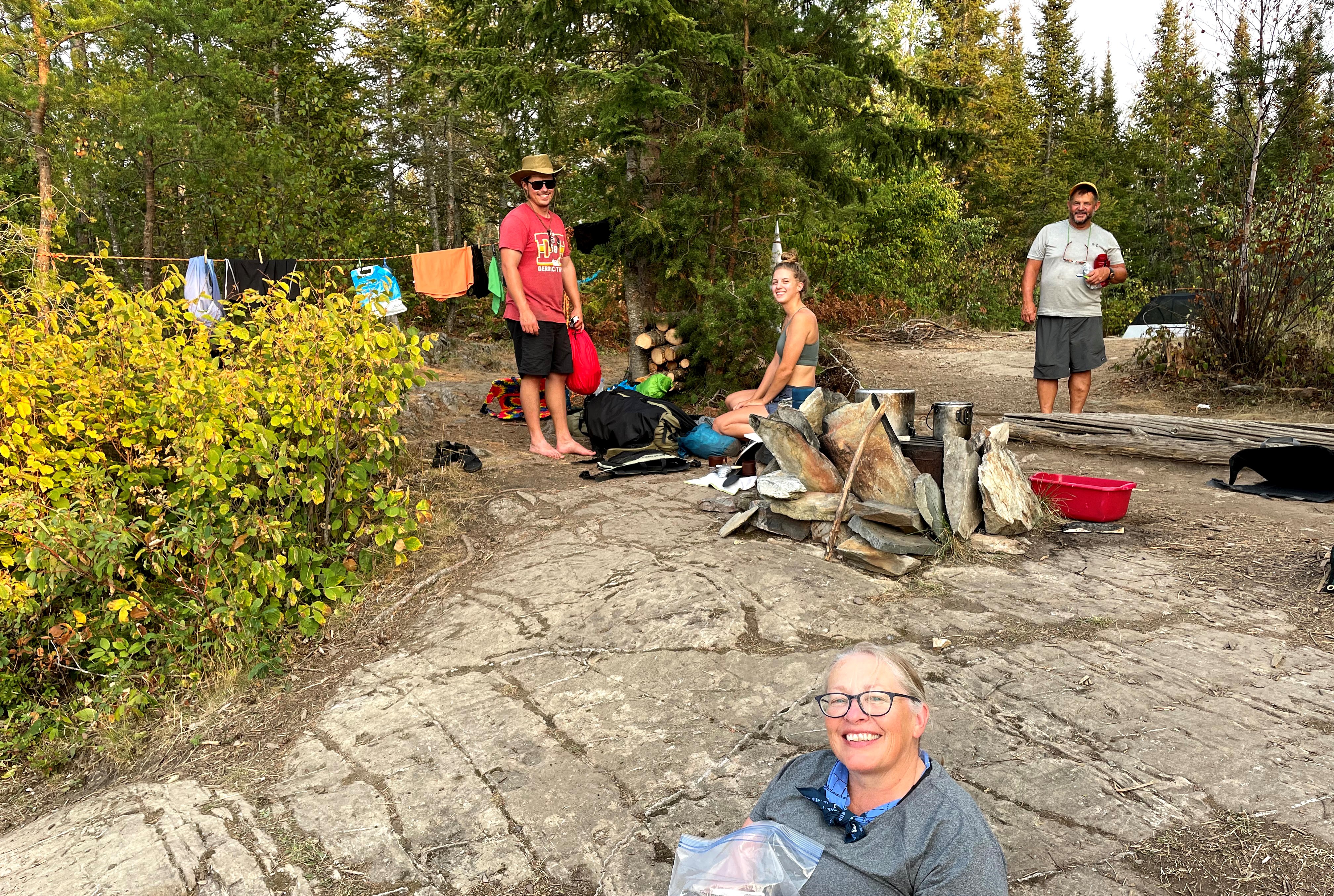
In the heat of the day, I waded into the cool, refreshing water to where I could still stand and ungracefully dog-paddled to and fro (unlike the otters)—it was my first ‘swimming’ adventure in nearly three decades. The fishermen fished, some napped, some read, and we watched canoers pass by looking for an open campsite. We knew their frustration, even as we breathed a sigh of relief that on this day, we were settled for the afternoon and night. We had a delicious supper of chicken tacos. With our limited, measured food, we anticipated our meals with excitement, enjoyed them with gusto, and appreciated them for fueling our bodies. At dusk, Emily went swimming again while Aaron and Zoe fished. The peacefulness of our early morning settled over us again with the smokey sunset. And with that, it was time to get ready for bed.
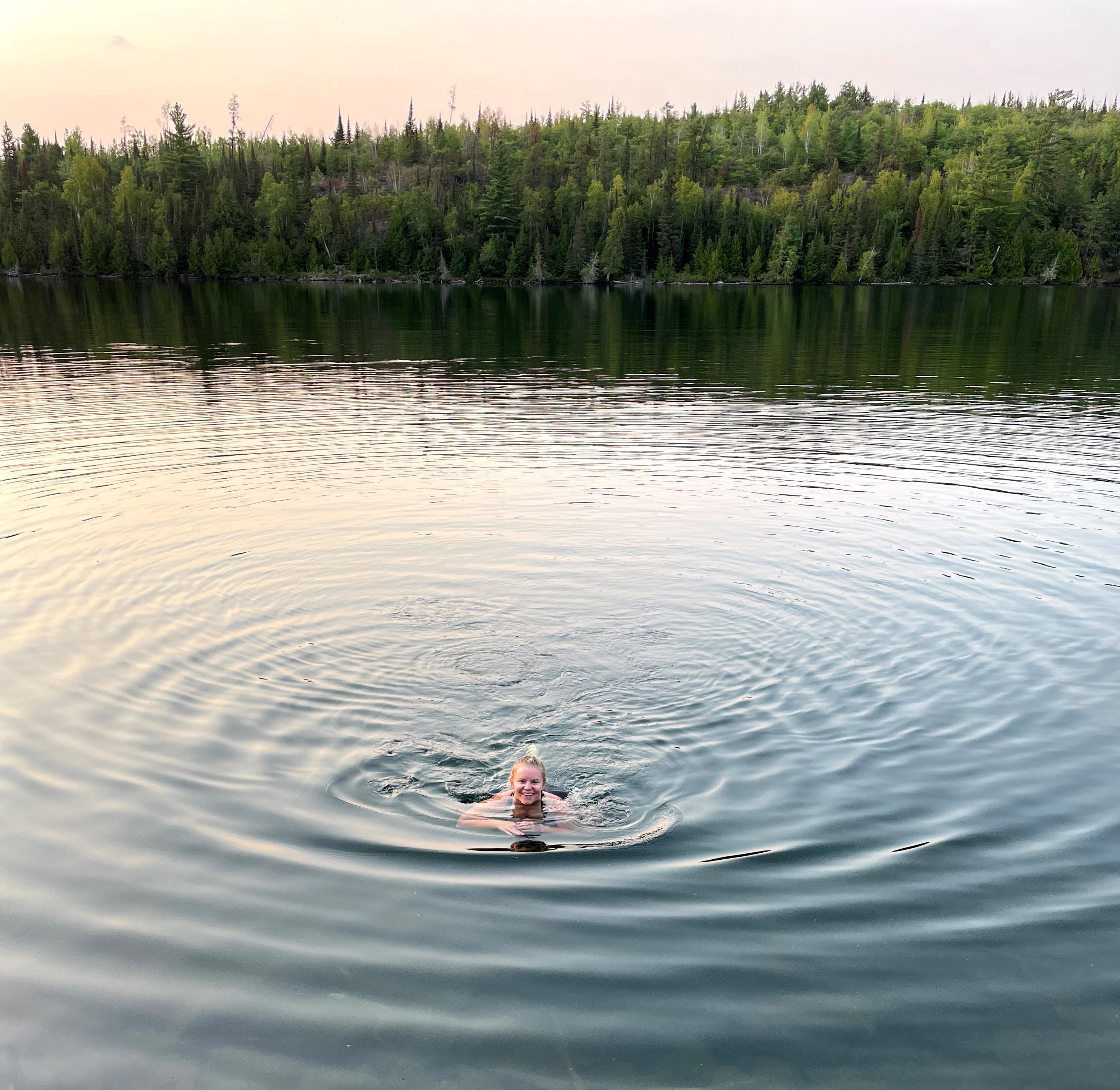
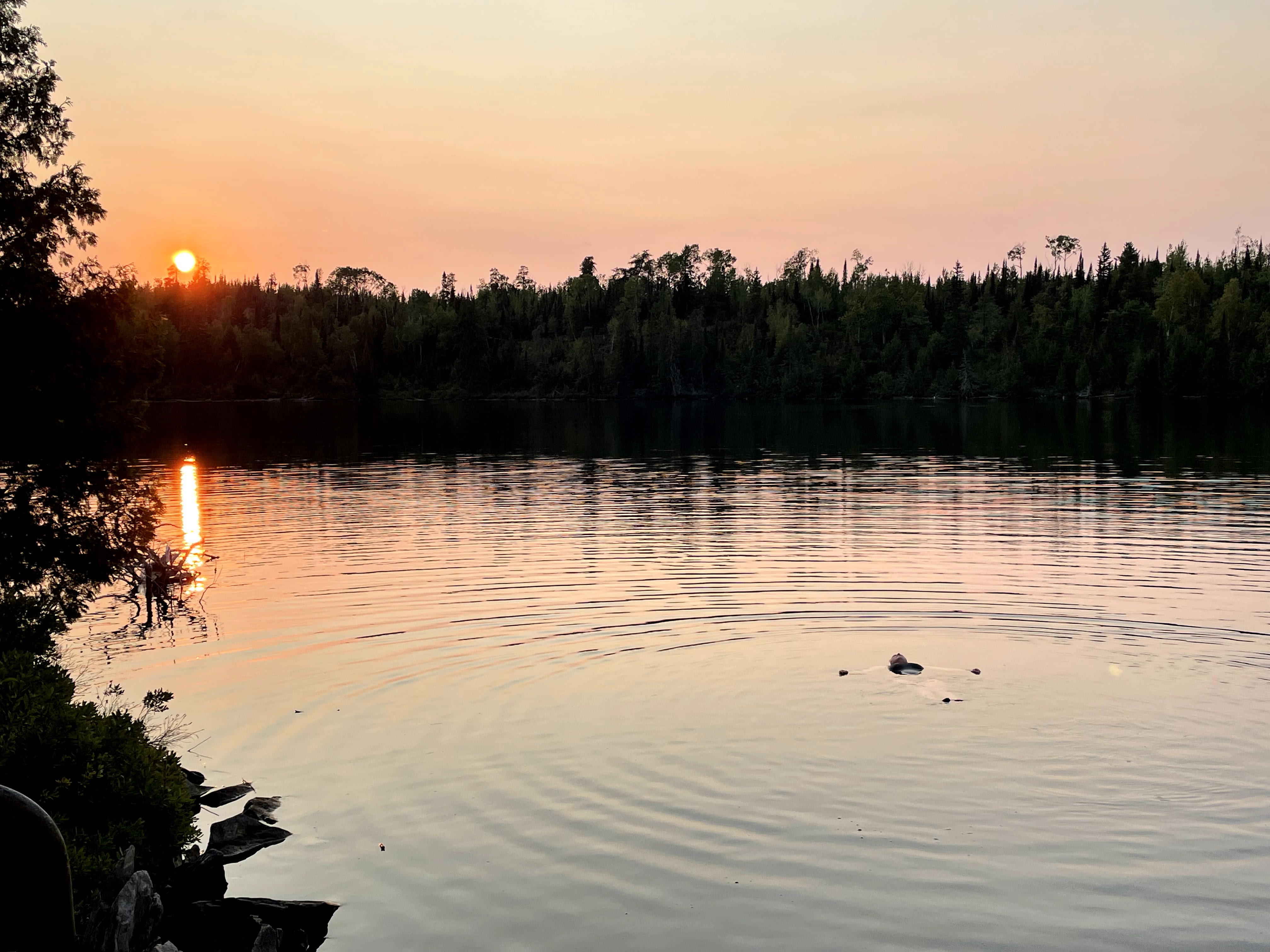
Life is simplified in the wilderness. The sun and stars are the clocks (though I don’t know how to ‘read’ the stars yet, I was aware of their movement through the night), food is life-giving and limited, water is abundant, the ‘work’ of paddling and portaging literally gets us to a new place, and art and beauty surround us. Challenges are simplified also. As Emily said the day before as we sat in the middle of a lake with no campsite in sight—what other choice do we have but to keep paddling? In the modern world, with copious choices for nearly everything, challenges and even day-to-day events can be confusing—too many choices do not give a person clarity. Being in the wilderness allows your mind and soul to rest and rejuvenate, and even challenges can bring peace.
This is the third post in a series of five that chronicles my experience of five days in the Boundary Waters Canoe Area (BWCA). It is best to read the whole series from the beginning (Anticipation) in order to understand certain things I refer to in my other posts.
Leave a Reply